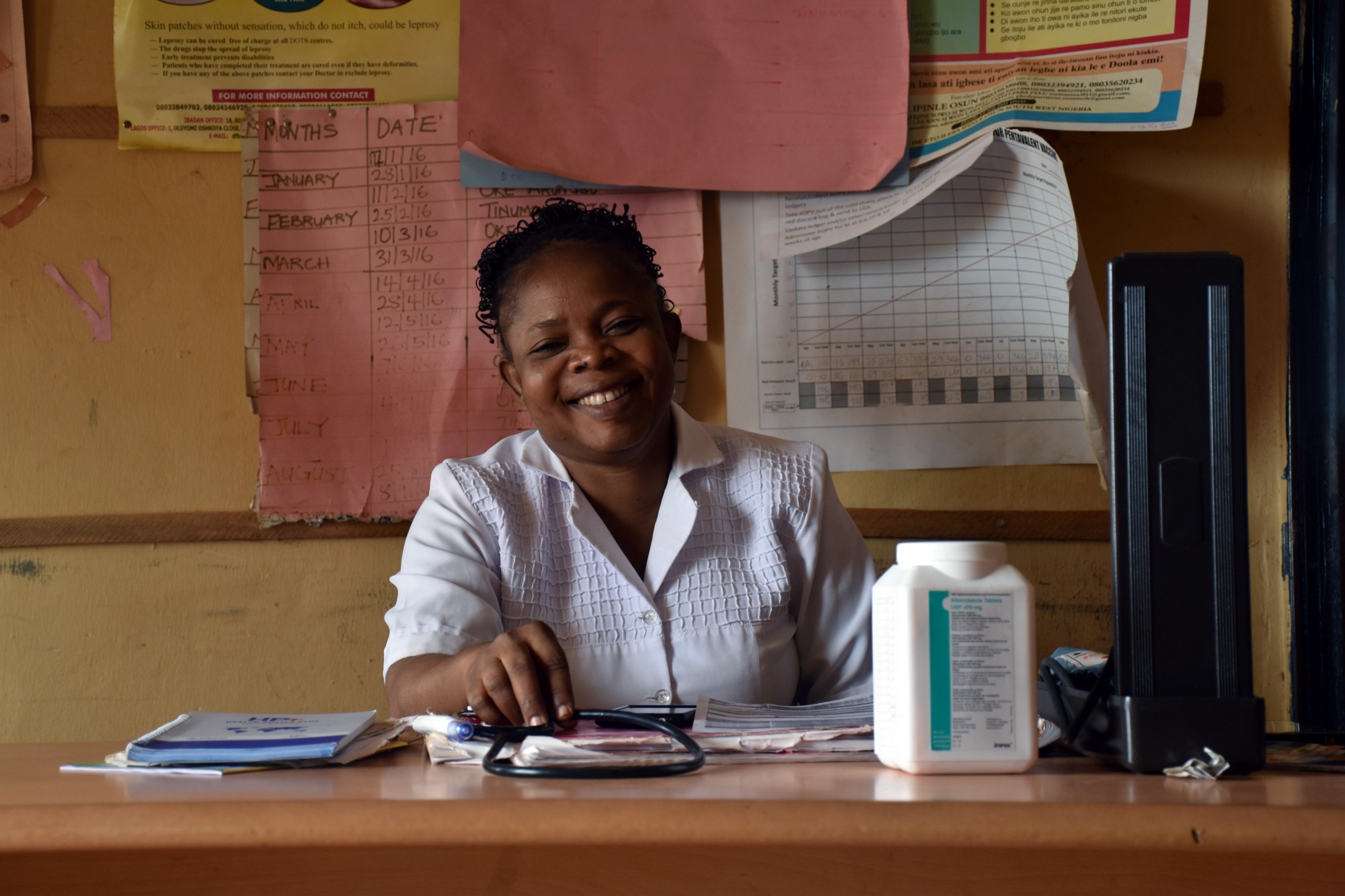with our monthly newsletter.
Adeniyi Adesoji Thomas, Titilayo Aremu, and Christianah Okunola worked to restore power. Credit: Hussain Ibrahim, HP+ Nigeria
No matter where a hospital or health centre is located, it must be prepared for natural disasters with an emergency plan, back-up generator, and full supply of in-demand drugs. But imagine keeping operations running – like storing drugs at the right temperature, staying open 24/7, and maintaining files, communications, and data – all without electricity for years.
This was the situation at the Alekuwodo health centre in Osun State, Nigeria, which had no electricity for four years. Its staff used battery-powered devices and solar-powered refrigeration to do their best, but struggled to store essential drugs at the precise needed temperatures or to maintain an adequate water supply. The health centre saw on average 200 patients a week, but without electricity they were unable to provide 24-hour care or secure a night guard for their remote community.
Nigeria's Health Funding
To help better manage and develop its healthcare system, the Nigerian federal government signed the National Health Act in 2014. This Act sets the standard for delivering healthcare to all Nigerian citizens and is the legal framework for the country's efforts to increase access to healthcare.
Part of the National Health Act is an earmarked Basic Health Care Provision Fund: money set aside to strengthen health systems and finance primary health services throughout the country. This year, the government released NGN 13.75 billion (about USD 38 million) into the fund to help provide access to high-quality and affordable healthcare, especially to the rural poor.
To take advantage of this fund, different agencies, organisations, and leaders have specific roles and responsibilities across all levels of government. It’s not always easy to know who is supposed to do what, or how to navigate the systems and processes to put these funds to use on the ground.

Seizing Resources
USAID through the Health Policy Plus (HP+) project is helping Nigeria to better implement these critical health policies, ensuring leaders and healthcare workers across the country are positioned to put them into action. Back in Osun State, workshops were held for health centre leaders to train them how to take advantage of the Basic Health Care Provision Fund and implement the solutions they need for high-quality healthcare – like electricity.
One attendee of the workshops, Adeniyi Adesoji Thomas, the Ward Development Committee Chairperson, says that the training "has enabled us to know our roles and responsibilities, and what we can do for our facility and the community."
"The workshops spurred action," reports USAID. Advocates met with electric company officials, community leaders, and local politicians. In less than a week, electricity was restored to the Alekuwodo centre.
Now with electricity, Alekuwodo has hired a night guard and is looking at ways to improve drug storage and offer 24-hour care. Staff morale is up with a "renewed drive to deliver high-quality care."
"We are so happy!" exclaimed Alekuwodo's officer-in-charge Titi Aremu. "Now there is light in the facility, and this will make our work easier and lively."
USAID partnered with the National Primary Health Care Development Agency, the National Health Insurance Scheme, and the Federal Ministry of Health to conduct the workshops with HP+. The project is working with other communities, following its mandate to strengthen Osun State's governance, stewardship, and ownership of critical health financing reforms.
with our monthly newsletter.

